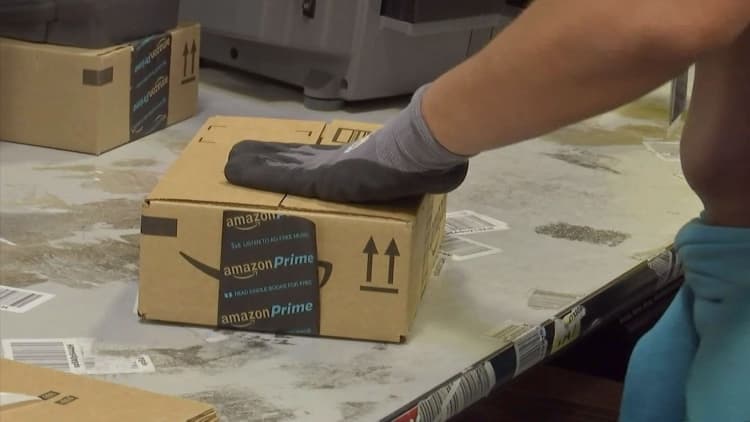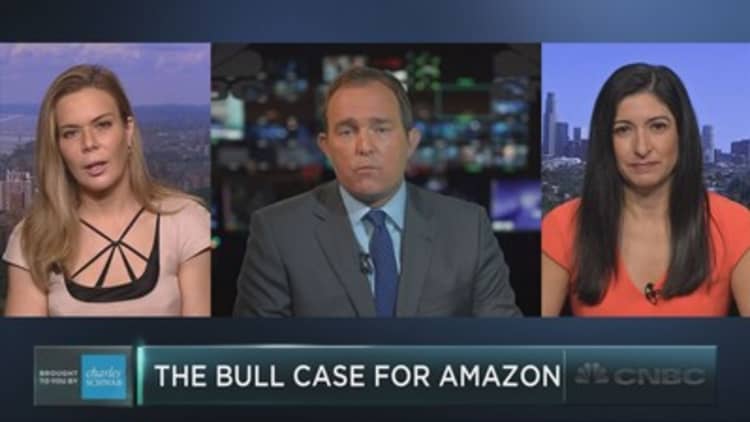Those of us who were around for the early days of the internet remember when Amazon was just a bookseller, or "Earth's biggest bookstore," as the company fondly described itself.
Amazon has since expanded to just about every market imaginable, becoming one of Earth's biggest companies altogether. But books -- even the physical kind -- remain a popular category, and Amazon is a big platform for large and independent booksellers to distribute their titles.
Starting Aug. 31, those third-party merchants have to adapt to a significant and costly change. According to an email that Amazon sent to sellers of books, CDs and DVDs, distributors to the lower 48 states will have to deliver items within a window of four to eight days, down from four to 14 days.
"We are launching new capabilities to help you set faster delivery times for your Seller fulfilled products. Customers are more likely to purchase products that have a faster estimated delivery time at checkout," the company said in an email to sellers that was obtained by CNBC.
For Amazon customers, particularly Prime members, this type of change may seem antiquated. Amazon has trained us to expect everything to arrive in two days, and in some cases faster. The company is putting in place a number of policies that force sellers to provide the same speed and quality of service that customers have come to expect from Amazon. Last week, CNBC reported on a new measure that makes it easier for buyers to get refunds at the seller's expense.
But marketplace merchants, who sell out of their garage or warehouse rather than using Amazon's fulfillment centers, have to build shipping costs into their business model, and they typically operate on very thin margins.

An East Coast seller, who asked that we not use his name for fear of retribution from Amazon, said he's been selling books on the site for 13 years, generating over $1 million in gross revenue, and this is the first time he's been forced to alter his delivery time. He expects his shipping costs to increase by 25 percent to 50 percent because he will no longer be able to rely on the U.S. Postal Service for cross-country deliveries and will instead have to use a more expensive express option.
The USPS has a special rate for media items and says on its website that delivery times range from two to eight days. But sellers told CNBC that coast-to-coast shipments often take a few days longer than that. The risk to missing Amazon's guaranteed delivery window is that a seller gets bad reviews, which means losing visibility on listings and can eventually lead to suspension.
Amazon said in an e-mailed statement that small businesses on the site are already delivering packages more quickly than expected. With the latest change, "we are bringing our promise in line with actual delivery times and helping small businesses increase sales without changing their current shipping methods," the company said.
It's been a rough year for media sellers on Amazon.
In March the company increased fees that those merchants pay for each item to $1.80 from $1.35. Then, as part of its crackdown on counterfeits, Amazon forced sellers of certain textbooks to show invoices before listing their items. Merchants buying used items from places like garage sales were suddenly stuck with unsellable inventory.
"Over the last six to eight months, there's been a string of things coming out and it seems to be getting harder and harder in media," said Tedric Paulk, co-founder of Oaxray, which helps sellers find inventory for their Amazon business. "They're just trying to increase customer experience, and if it gets rid of some media sellers, I don't think they're worried about that."
Books and music are already a tough market for Amazon merchants. Media has long been going digital, and Amazon is encouraging the move through Kindle and devices like the Fire TV Stick and Echo. Additionally, Amazon is opening its own physical book stores.
Now sellers have to find another way to make up for rising costs, and they have only a few short weeks to do so.
-- Updated with a statement from Amazon
WATCH: Should investors buy Amazon on the dip



